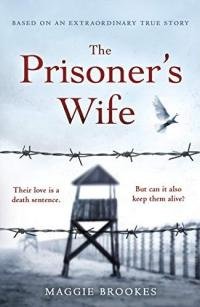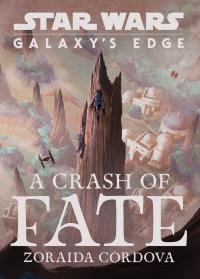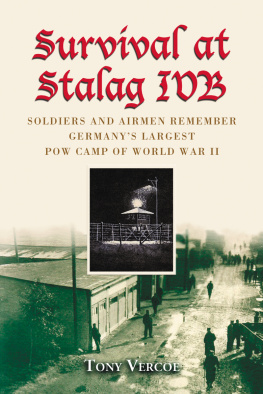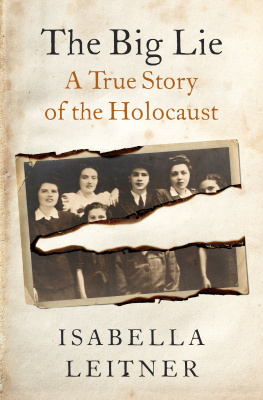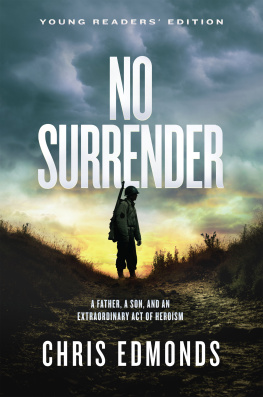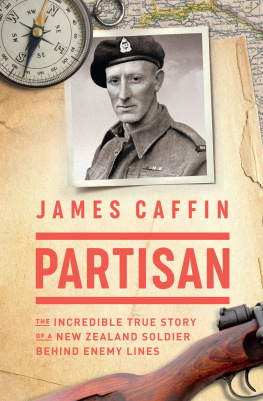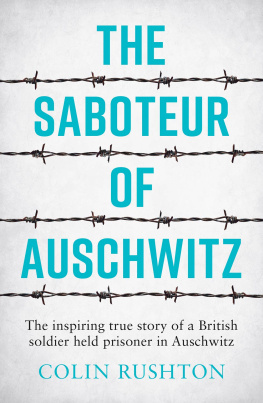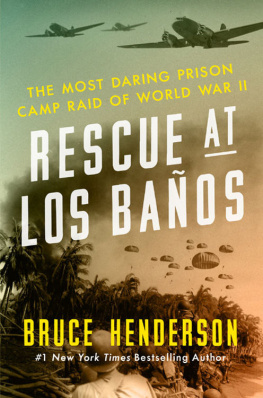BERKLEY
An imprint of Penguin Random House LLC
penguinrandomhouse.com
Copyright 2020 by Avington Books Ltd
Readers Guide copyright 2020 by Maggie Brookes
Penguin Random House supports copyright. Copyright fuels creativity, encourages diverse voices, promotes free speech, and creates a vibrant culture. Thank you for buying an authorized edition of this book and for complying with copyright laws by not reproducing, scanning, or distributing any part of it in any form without permission. You are supporting writers and allowing Penguin Random House to continue to publish books for every reader.
BERKLEY and the BERKLEY & B colophon are registered trademarks of Penguin Random House LLC.
Library of Congress Cataloging-in-Publication Data
Names: Brookes, Maggie, author.
Title: The prisoners wife / Maggie Brookes.
Description: First edition. | New York : Berkley, 2020.
Identifiers: LCCN 2019043288 (print) | LCCN 2019043289 (ebook) | ISBN 9780593197752 (paperback) | ISBN 9780593197769 (ebook)
Subjects: LCSH: World War, 1939-1945--Prisoners and prisons,
Czech--Fiction. | GSAFD: Historical fiction.
Classification: LCC PR6102.U874 P75 2020 (print) |
LCC PR6102.U874 (ebook) | DDC 823/.92--dc23
LC record available at https://lccn.loc.gov/2019043288
LC ebook record available at https://lccn.loc.gov/2019043289
First Edition: May 2020
Cover art: image of couple by Collaboration JS / Arcangel Images;
image of fences and guard towers by Paul Bucknell / Arcangel Images
Cover design by Emily Osborne
Book design by Laura Corless
This is a work of fiction. Names, characters, places, and incidents either are the product of the authors imagination or are used fictitiously, and any resemblance to actual persons, living or dead, business establishments, events, or locales is entirely coincidental.
Contents
Title Page
Copyright Page
Dedication
Epigraph
Map
Historical Note
Prologue
PART ONE
One
Two
Three
Four
Five
Six
Seven
Eight
Nine
Ten
PART TWO
Eleven
Twelve
Thirteen
Fourteen
Fifteen
Sixteen
PART THREE
Seventeen
Eighteen
Nineteen
Twenty
Twenty-one
Twenty-two
PART FOUR
Twenty-three
Twenty-four
Twenty-five
Twenty-six
Twenty-seven
Twenty-eight
Twenty-nine
Thirty
Epilogue
Authors Note
Acknowledgments
Readers Guide
About the Author
In memory of Alfred Arthur Brookes
and all the other prisoners of war who endured so much
in the hope it would never happen again.
And for Katie, Amy and Tim. All love.
It happened, therefore it can happen again: this is the core of what we have to say.
PRIMOLEVI
Historical Note
This incredible story was related by Lance Corporal Sidney Reed, who was a prisoner of the Nazis during the Second World War at Lamsdorf, Stalag VIII B / 344 in Poland and the labor camp E166 at Saubsdorf quarry, Czechoslovakia. During the war, Poland and Czechoslovakia were under the control of Hitlers Third Reich.
By 1944, when this story begins, the Nazis had established huge prisoner of war camps at the eastern reaches of Czechoslovakia and Poland in order to keep the captured allies as far as possible from home. It is estimated that they had taken almost two hundred thousand British prisoners. The officers were held in POW camps, but the 1929 Geneva Convention allowed the lower ranks to be deployed into labor camps known as Arbeitskommado. Lamsdorf POW camp alone could hold thirteen thousand British prisoners, but also deployed twelve thousand additional men into labor camps to build roads and to work in mines, in factories and on the land.
This story starts in the Czech region of Silesia, which was part of the Austro-Hungarian empire until 1918. Many of the people who lived there were German speaking and welcomed the Nazi annexation of their lands. However, in March 1939 Hitler rode into Prague, declaring the rest of Czechoslovakia a protectorate of the Third Reich, and the entire country began life under the Nazis. By 1944, the Czech resistance was growing strong.
The names of many places have changed since 1944. This novel uses a mix of modern and wartime names. For more information about this, see the authors note at the end of the text.
Prologue
Everything was quiet and still, apart from the light crunch of our boots as we crept down the deserted street. The sliver of moon disappeared behind a cloud, and we slowed our pace, barely able to make out the way ahead.
That was when we heard the dogs. Only one bark at first, carrying in the quiet of the night. We clutched each others hands and stood still for a moment.
Then another bark. And another. Not muffled by the walls of a building, but out in the night, like us, out in the streets.
Instinctively we moved away from the sound, and the buildings glowered at us, closing in. My heart was drumming, and my breath came fast. We walked more quickly. The dogs were barking, closer, the sound echoing off the buildingsperhaps two dogs, perhaps three. We turned to see whether they were in sight, but the darkness was too absolute. We were acutely aware of the noise of our boots on the cobbled road.
And then there were shouts behind us, mens voices, excited to have something to do in the boredom of the night watch, egging on the dogs, eager for the hunt. Whichever way we turned, the dogs and the men grew closer, and our boots clanged more loudly.
It became a town of sounds: our breath, the pounding of our blood in our ears, the clatter of our boots on the road, the dogs barking, men running and calling, closer, closer. Perhaps we could have stopped, knocked on a door and begged for help, but we didnt. We just kept going, faster and faster, running, Bill dragging me with him. I was breathless to keep up, my kit bag banging awkwardly against my legs.
At last there was an opening in the terrace, an archway leading into a narrow arcade lined with dark shops. Toward the end of the alley was an even darker place that looked like another turning, but it was only a wide doorway, up two steps, set back and hidden until we drew level with it.
Now the dogs were almost on us, and Bill pulled me up into the doorway, threw his arms around me, squeezed me very hard and whispered, Im so sorry, into my hair. Then he pushed me away from him so we wouldnt be found touching. I shut my eyes and waited for the dogs teeth, hoped it would be over quickly.
Everything seemed to happen at once: the dogs, the men, a searchlight in my face. I raised my arm to cover my eyes and heard the panting breath of the men, the loudness of their voices. My teeth were chattering, and I had to clamp them shut. The voices behind the light became one disembodied shout in German from the senior officer. Hands up! Against the wall!
We stumbled down the two steps. Bill went to one side of the doorway, and I to the other. I raised my arms and leaned my face against the wall to stop myself from falling, feeling the roughness of the brick against my cheek.
Behind the wall I sensed the people who lived there scurrying like mice, listening with excitement and maybewho knows?with pity. I bit my lips, determined not to sob, not to let it end this way.
PART ONE
VRAN, OCCUPIED CZECHOSLOVAKIA
June to October 1944
One
War had ripped across Europe for five yearsa great tornado, scattering families, tearing millions of people from their loved ones forever. But sometimes, just sometimes, it threw them together. Like with me and Bill. A Czech farm girl and a London boy who would never have met, hurled into each others paths. And we reached out, caught hold and gripped each other tight.
Next page
